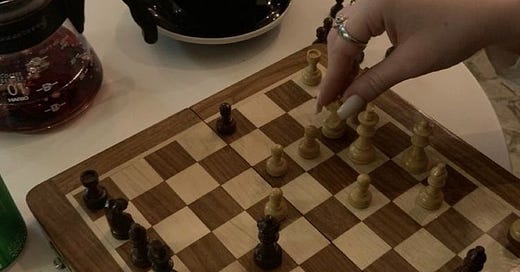Life is a game of risk and reward—the risks being the decisions we make and the rewards being the outcomes. What makes a decision a risk is the possibility of an outcome being favorable, unfavorable, or anything in between. The outcomes of our decisions depend on the factors affecting the event and environment in which our decisions become actions.
Let’s say you decide to take the opportunity of getting a promotion at work. That decision becomes an action when you send in your application and do an interview. The outcome is not entirely in your control, as there are many factors external to you influencing your likelihood of getting that job, such as other applicants (competition) and the company’s current needs. The risk part of this comes in when you realize that even though you already put so much effort into your application and job in general, you still might get rejected for whatever reason.
But there are two kinds of rewards here: 1 being you actually get your desired outcome (favorable) and 2 being the learning curve created through introspection after not getting your desired outcome (unfavorable) and trying to figure out why.
I have personally observed that even though risk-taking can be beneficial regardless of the outcome, people, including myself, tend to avoid risk due to the fear of rejection & disappointment—two forms of suffering caused by attachment to the unmanifested outcome. Yes, it is only human to avoid suffering. But how can we still take risks while minimizing the possible suffering induced by an unfavorable outcome?
My praxis is detachment from the outcome. Having an emotional bond with an unmanifested outcome is the same thing as investing money into an unmaterialized business plan. It breeds expectation of a favorable outcome and basically sets you up for emotional damage. The higher the hopes, the harder the fall of disappointment.
But if we detach from the desired outcome as soon as it is established, we have more time and energy to focus on the next step, which is to derive more pleasure in the action/process/effort made toward achieving our desired outcome. We are 90% in control of the individual actions that make up the process of making an effort toward achieving our desired outcome. These tiny actions can have more than one outcome, which, if aligned with our desires, can give us pleasure.
Doing better at your job each day, putting together a portfolio, and preparing for an interview can prove to be rather pleasurable actions—if your field of work brings you enough bouts of joy and if your preparations for the interview involve genuine self-expression of your identity, hard work, and passion. Deriving more pleasure from the process than the possibility of achieving a favorable outcome can help us detach from the outcome, move on from it, and encourage us to look forward to indulging in the process again when taking more risks in the future.
In short, detaching from our desired outcomes after doing our best to achieve them helps us take more risks and take advantage of more opportunities – We can now play the game of life.
kwenza ♡





